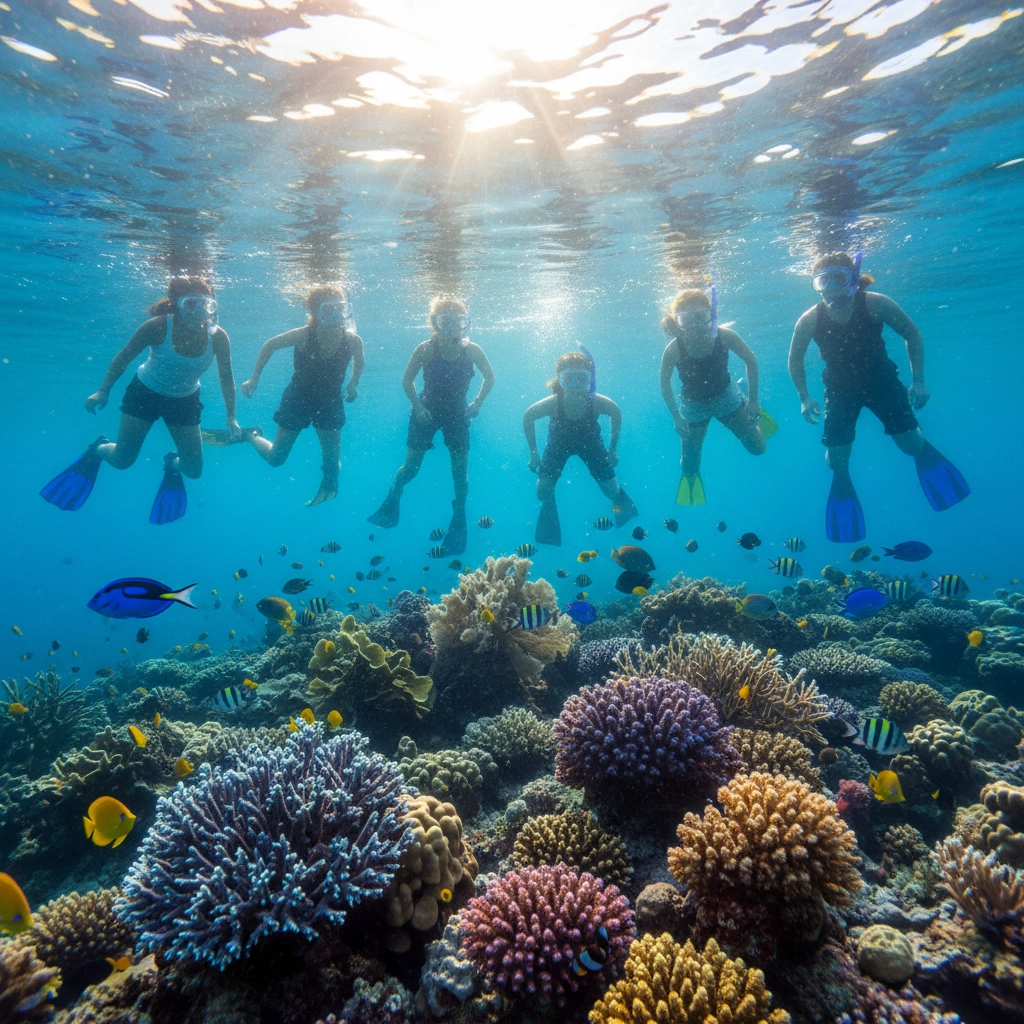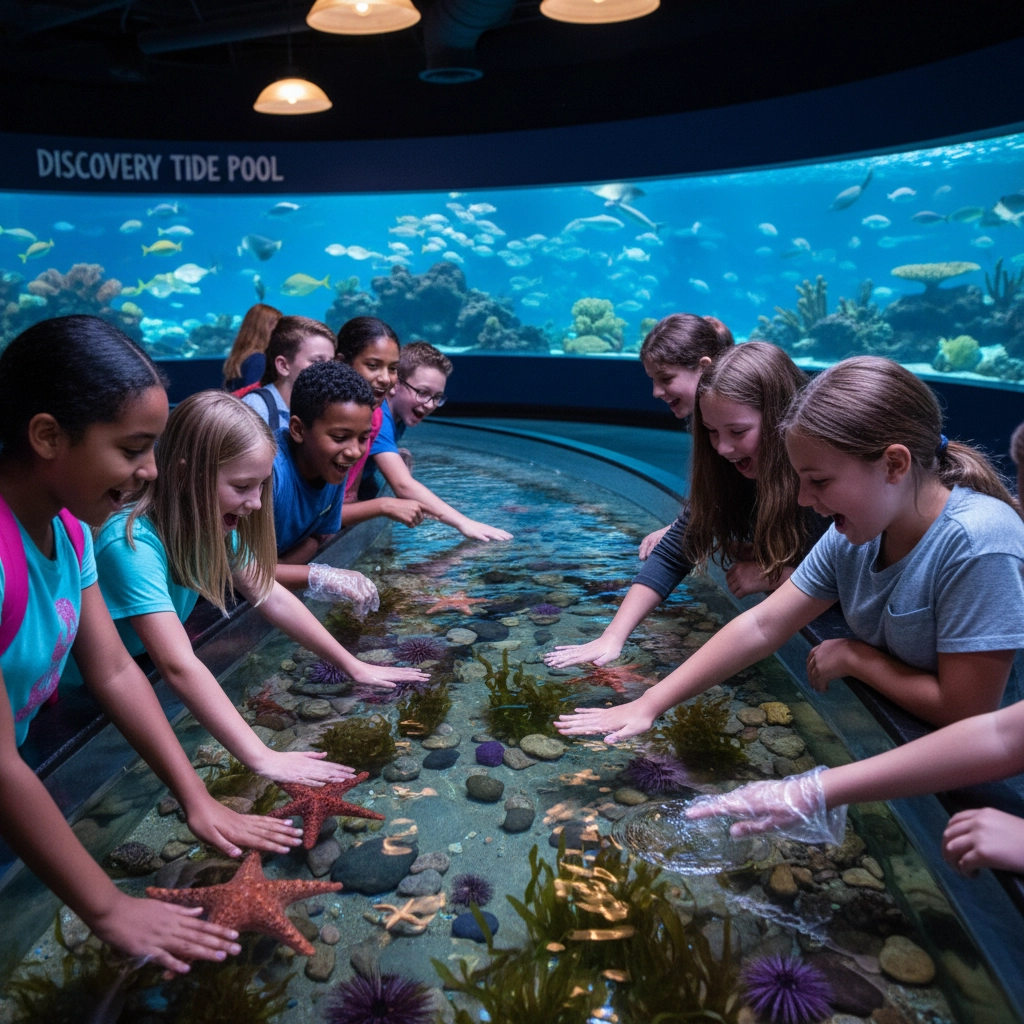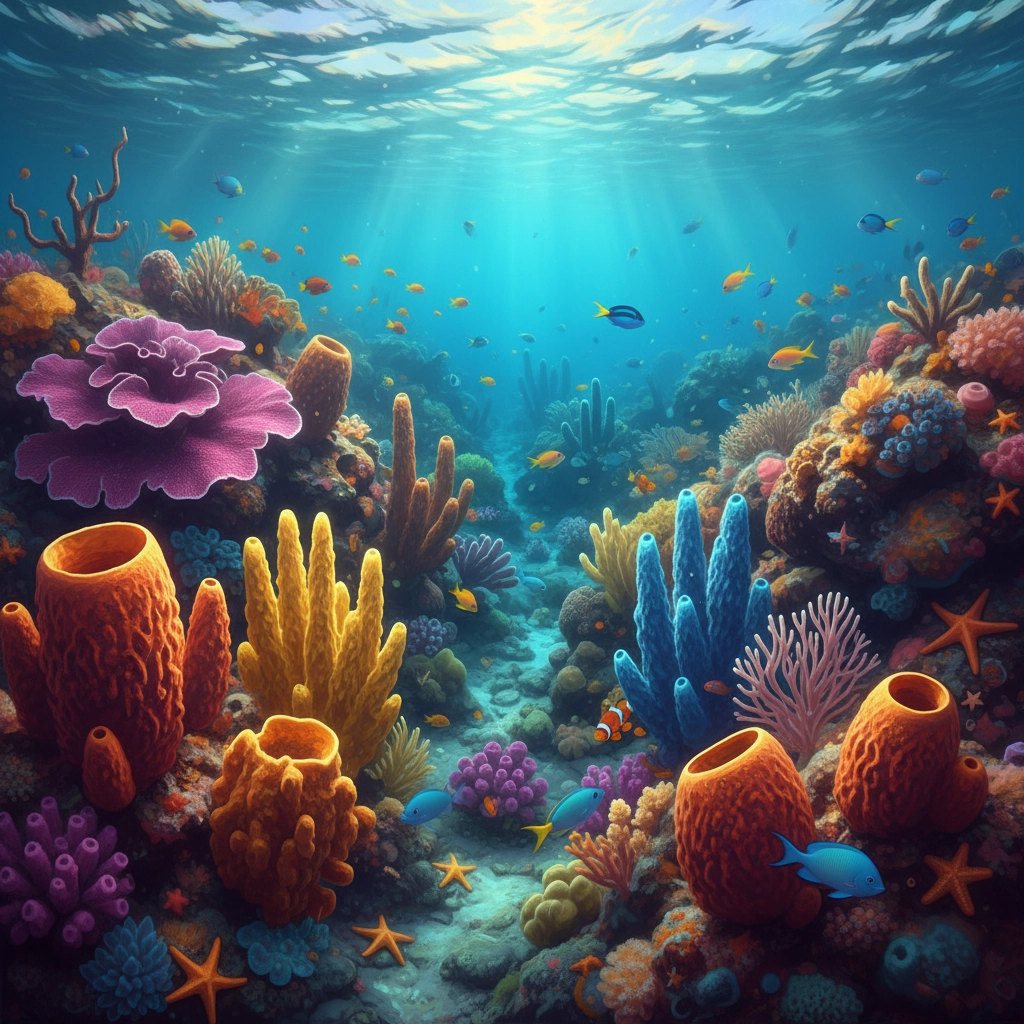Top 10 Must-See Locations for Science Students in the Florida Keys
- Caleb Mullenix
- Oct 27, 2025
- 6 min read
Ensuring your students experience the most comprehensive marine science education possible requires careful selection of learning environments that maximize both safety and educational impact. The Florida Keys represents one of North America's most exceptional living laboratories, where three distinct ecosystems: coral reefs, seagrass beds, and mangrove forests: converge to create unparalleled opportunities for hands-on scientific discovery.
Planning your educational expedition to these unique marine habitats involves strategic prioritization of locations that offer the most robust learning experiences while maintaining the highest safety standards. The following ten destinations have been carefully selected based on their educational value, safety protocols, and ability to demonstrate critical ecological concepts that align with marine science curriculum standards.
1. Pigeon Key Marine Science Center
Establish your program's foundation at the Pigeon Key Marine Science Center, located on a private five-acre island specifically designed for educational excellence. This facility has successfully hosted over 30,000 participants from more than 1,000 schools over two decades, demonstrating proven expertise in student safety and educational delivery.
The center's exclusive hosting model ensures your group receives individualized attention without distractions from other visitors. Students engage in supervised snorkeling expeditions to Sombrero Reef aboard professionally maintained 35-foot catamarans, where they observe the world's third-largest barrier coral reef system under expert guidance.
Advise students to prepare for multi-day immersive experiences, with comprehensive programs starting at $540 per person for three-day, two-night sessions. Emphasize the importance of students meeting swimming proficiency requirements and following all aquatic safety protocols during reef exploration activities.

2. Mote Marine Laboratory & Aquarium
Direct your students to engage with cutting-edge marine research at Mote Marine Laboratory, where authentic scientific research partnerships provide unmatched educational opportunities. This world-class facility advances marine science through active research programs while offering structured educational experiences designed specifically for student groups.
Ensure students understand they will participate in real scientific methodologies alongside leading marine researchers. The laboratory's research focus areas include coral restoration, marine animal behavior studies, and ecosystem monitoring: providing students with exposure to current scientific challenges and conservation solutions.
Coordinate with facility staff to arrange specialized workshops that align with your curriculum objectives. Students gain hands-on experience with scientific equipment and laboratory procedures while contributing to ongoing research initiatives.
3. Sombrero Reef Living Laboratory
Implement supervised snorkeling expeditions to Sombrero Reef to provide students with direct observation opportunities of living coral ecosystems. This location offers exceptional visibility and biodiversity, allowing students to document marine species interactions and ecosystem relationships in their natural habitat.
Students observe symbiotic relationships between coral polyps and zooxanthellae algae, predator-prey interactions, and the complex food web dynamics that sustain reef communities. Ensure all participants demonstrate adequate swimming skills and maintain constant supervision during underwater observation activities.
Prepare students to identify key indicator species including sea turtles, parrotfish, angelfish, and various coral species. Emphasize the importance of maintaining appropriate distances from marine life and adhering to strict no-touch policies that protect both students and marine organisms.
4. Florida Keys Eco-Discovery Center
Begin your terrestrial ecosystem studies at the Florida Keys Eco-Discovery Center, which operates Wednesday through Saturday from 9 AM to 4 PM with no admission fees. This facility provides controlled learning environments where students can examine marine specimens and ecosystem models before engaging with live ecosystems.
Direct students to utilize the facility's electronic microscopy capabilities to examine coral polyp structures and marine microorganisms. Interactive exhibits featuring retractable cylinders allow students to explore seagrass habitat recreations and observe detailed models of marine invertebrates.
Schedule viewing of the facility's 20-minute educational film, which provides essential background knowledge for understanding Florida Keys marine ecosystems. Weekend visits offer additional educational cart programming focused on animal adaptations using authentic marine organism specimens.

5. Key West Aquarium Interactive Learning Center
Incorporate controlled marine life interactions at the Key West Aquarium, which has maintained educational programming since 1935. The facility's touch tanks provide safe opportunities for students to interact with starfish, sea urchins, and other marine invertebrates under supervised conditions.
Students examine local marine species including tropical fish, stingrays, eels, and sea cucumbers while learning about species adaptation strategies and habitat requirements. Emphasize proper hand hygiene protocols before and after touch tank interactions to ensure both student safety and animal welfare.
Coordinate with aquarium staff to arrange specialized educational presentations that complement your curriculum objectives. The facility's long-standing operation demonstrates proven safety protocols and educational expertise essential for successful student programs.
6. Mangrove Forest Kayaking Expeditions
Establish comprehensive mangrove ecosystem studies through professionally guided kayaking expeditions that allow students to observe this critical habitat while maintaining appropriate environmental impact levels. Mangrove forests serve as nursery areas for numerous marine species and demonstrate essential coastal protection functions.
Ensure all students receive proper kayaking instruction and safety equipment before entering mangrove waterways. Professional guides maintain constant supervision while students observe root system adaptations, salinity tolerance mechanisms, and wildlife utilization patterns within these unique ecosystems.
Students document species diversity including juvenile fish, crabs, birds, and marine invertebrates that depend on mangrove habitats for survival. Emphasize the ecological connections between mangrove, seagrass, and coral reef ecosystems while maintaining quiet observation protocols that minimize wildlife disturbance.
7. Shallow Bay Sponge Study Sites
Direct students to examine marine sponge communities in shallow bay habitats where these filter-feeding organisms demonstrate critical ecosystem functions. These locations provide safe, controlled environments for underwater observation while offering exceptional educational opportunities for understanding marine invertebrate biology.
Students observe sponge feeding mechanisms, reproduction strategies, and symbiotic relationships with other marine organisms. Ensure proper supervision during snorkeling activities and maintain appropriate safety protocols including buddy system implementation and emergency response procedures.
Coordinate collection of water quality data to demonstrate the relationship between environmental conditions and sponge community health. Students learn to identify various sponge species while understanding their roles in maintaining water quality and providing habitat structure for other marine organisms.

8. Florida Keys Wild Bird Center
Implement wildlife rehabilitation and conservation education through supervised volunteer opportunities at local wild bird sanctuaries. These facilities provide students with direct exposure to wildlife conservation challenges while demonstrating the impacts of human activities on marine and coastal ecosystems.
Students participate in appropriate volunteer activities including habitat maintenance, educational program preparation, and data collection under professional supervision. Emphasize the importance of following all safety protocols when working with wildlife and maintaining proper hygiene standards.
Coordinate with facility staff to arrange educational presentations about seabird ecology, migration patterns, and conservation challenges. Students learn about the interconnections between marine and terrestrial ecosystems while gaining practical experience in conservation biology.
9. Seagrass Bed Research Sites
Establish comprehensive seagrass ecosystem studies in designated research areas where students can safely observe these critical marine habitats. Seagrass beds provide essential ecosystem services including carbon sequestration, sediment stabilization, and nursery habitat for commercially important fish species.
Students document seagrass species diversity, measure growth rates, and observe associated marine life including seahorses, juvenile fish, and marine invertebrates. Ensure proper supervision during snorkeling activities and maintain strict adherence to research site protection protocols.
Implement data collection procedures that contribute to ongoing seagrass monitoring efforts while providing students with authentic research experiences. Emphasize the ecological connections between seagrass beds and adjacent coral reef and mangrove ecosystems.
10. Community Service with Migrant Worker Families
Integrate meaningful community service opportunities through educational mentoring programs that connect your students with children of migrant worker families in the Florida Keys region. These programs provide cultural exchange opportunities while reinforcing scientific concepts through peer education activities.
Students develop leadership skills while sharing marine science knowledge with younger participants through structured educational activities. Ensure appropriate adult supervision and coordination with local community organizations to maintain program safety and effectiveness.
Emphasize the importance of respectful cultural exchange and the development of communication skills that will serve students throughout their educational and professional careers. These experiences demonstrate the broader impacts of scientific literacy and environmental stewardship within diverse communities.
Planning your Florida Keys educational expedition requires careful coordination of these diverse learning opportunities while maintaining the highest standards of student safety and educational effectiveness. Each location offers unique opportunities to demonstrate the interconnected nature of marine ecosystems while providing students with authentic research experiences and conservation awareness that will influence their future academic and career decisions.
Prepare comprehensive emergency response procedures for all aquatic activities and maintain constant communication with facility staff and professional guides throughout your expedition. The educational benefits of these exceptional learning environments will provide your students with transformative experiences that demonstrate the critical importance of marine conservation and scientific research in addressing contemporary environmental challenges.



Comments